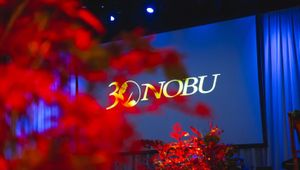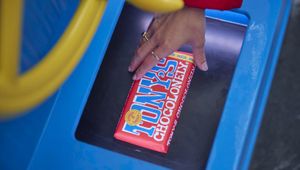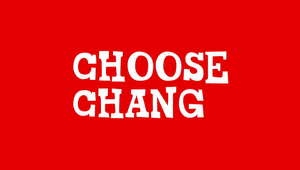
Hijack the Hype: Smart Ways Brands Can Align with Major Events Without Paying Sponsorship Fees

Image credit: Aranxa Esteve via Unsplash
Each year, major sporting, music and cultural events dominate headlines, timelines and conversations. From Coachella to the London Marathon to Wimbledon to Pride, these tentpole moments offer brands a golden opportunity to reach huge, engaged audiences. But not every brand can afford - nor needs - to be a headline sponsor.
Enter: ambush marketing. It’s a clever, cost-effective strategy that allows brands to associate themselves with a major event without the hefty price tag. Done right, it can deliver outsized impact, generate social buzz and deepen cultural relevance. But it requires precision, creativity and a deep understanding of what matters to the audience.
Of course, brands must tread carefully. Big events often come with tight regulations, legal grey areas and strict enforcement around official sponsorship. But when executed correctly, ambush marketing can be a game-changer.
Here are some standout examples of how brands have successfully hijacked the hype:
Puresport’s Roadside Recovery at the London Marathon
Puresport nailed the tone of the marathon experience with their inventive 'Roadside Recovery' activation. At mile 24 – when runners hit a wall – Puresport set up a petrol station-themed recovery point, handing out electrolytes to exhausted participants. The creative ‘fuel stop’ mirrored the runners’ desperate need for a top-up, combining humour, relevance and real utility. It was one of the most talked-about brand moments of the event - without the sponsorship price tag.
Aldi Pays Homage to Oasis
When Oasis returned for their Manchester homecoming gigs, Aldi joined the celebration with a hyper-local twist. The Prestwich branch changed its sign to read "Aldeh" - a nod to the Mancunian dialect and the legendary band. Simple, cheeky and budget-friendly, it showed cultural fluency and earned plenty of online love. Proof that even a supermarket can get in on the action without needing a stadium.
Grindr Rides America Tour
Grindr launched a nationwide mobile experience dubbed the 'Rides America Tour,' bringing a Pride-themed bus to over a dozen US cities. The tour featured interactive storytelling, live DJ sets, community photo stations and local artist collaborations - while never positioning itself as an event sponsor. The bus became a vibrant, mobile Pride hub that travelled the country, generating buzz and community engagement outside of official parade structures.
Nike - An Honest Take on Running
Nike sidestepped traditional sponsorship fees at the London and New York Marathon this year by leaning into honesty and relatability. Instead of aspirational visuals, they opted for gritty, no-filter messaging that captured the true experience of marathon running: chafing and exhaustion.
Alongside the OOH in London, Nike launched a pop-up community hub on Regent Street with limited-edition merch and spaces for runners to connect before and after the race. Nike positioned itself as a cultural leader in the running community - without paying to be front and centre.
Walker’s Shortbread Teamed Up With Andy Murray in Wimbledon
To align with Wimbledon fever, Walker’s Shortbread surprised fans on Wimbledon High Street with a pop-up starring Andy Murray. The tennis champ served strawberries and cream to passers-by, unveiling the 'Andy Murray Signature Serve.' A perfect slice of Britishness, it brought together nostalgia, surprise and national pride - just outside the tournament gates.
Hellmann’s + Charli XCX = BRATTY Brilliance
Capitalising on Charli XCX’s wildly popular 2024 BRAT tour, Hellmann’s launched a mobile pop-up outside one of her arena shows, handing out free ‘club classic’ sandwiches (a nod to a track from her album). The stunt was cheeky, culturally on-point and pretty unexpected for a mayo brand.
Domino’s ‘Rocket Man’ Pizza Delivery at Glastonbury
Glastonbury is notoriously selective about brand presence. But Domino’s found a way in in 2023 - delivering pizzas by jetpack to festival-goers. The stunt, timed with Elton John’s headline slot, generated huge buzz, media coverage and genuine awe. A surreal, shareable moment that put Domino’s within the cultural conversation.
Alo Yoga Wellness Lounge at Coachella
Outside Coachella’s official grounds, Alo Yoga hosted a wellness lounge offering yoga classes, branded smoothies and influencer moments. This cleverly positioned Alo as part of the festival culture - without formal sponsorship - creating an experiential oasis for guests and creators.
BrewDog – Proud Anti-Sponsor of the World F*Cup
BrewDog took a bold stance against the Qatar 2022 World Cup with an OOH campaign that openly criticised the tournament’s ethical issues. Lines like 'Proud Anti-Sponsor of the World F*Cup' and 'Eat, Sleep, Bribe, Football' sparked huge conversation. They weren’t official partners - they didn’t want to be. Instead, they used the global spotlight to amplify their values in association with a sport that they are passionate about.
Tips for Marketers: Making Ambush Marketing Work
- Proximity matters: Activate near the action - not in it. Look for high-footfall areas just outside venues, fan zones or cultural hotspots where you can legally and effectively build presence.
- Be emotive: Tap into the emotional tone of the event - joy, pride, rebellion, community - and create experiences that reflect those vibes.
- Make it useful or delightful: Whether it’s hydration, comfort, entertainment or humour - offer something people actually want or need in the moment.
- Avoid legal landmines: Never use trademarked terms or official logos. Instead, play on language, cultural cues or universal references that are thematically linked but legally safe. Do your homework on what is permissible.
- Plan to be shareable: Design for real-world engagement, as well as PR and social amplification.
Tread Boldly, But Carefully
Ambush marketing isn’t about piggybacking blindly. The most effective examples are culturally fluent, emotionally intelligent and deeply aligned with audience mindset. Whether it’s humour, utility, rebellion or shared pride, the best activations tap into something more meaningful than logos and sponsorship packages.
For brands without multimillion-pound budgets, this approach can unlock access to major cultural moments and create impact far beyond their spend. Just make sure legal is in the loop - and that your idea is as good as your timing.












